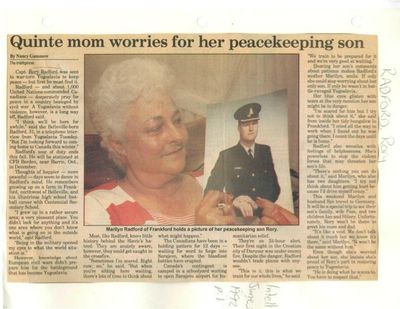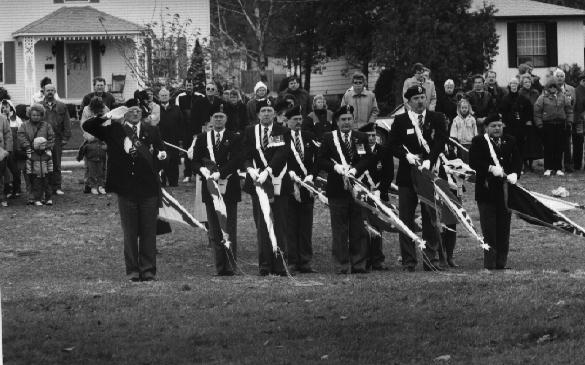
Canada As Peacekeeper
Starting in the 1980s Canada's military involvement in international conflicts gradually shifted from being an active actor of military action to peacekeeping and deterring aggression. Thanks to the stories of wars and the general public's gradual realization of the brutal nature of violence, people began understanding peace as a precious gift to humanity, while appreciating the dedication and bravery of those who risked their lives to protect others.
Canada's most recent participation in a large, active military action was the Gulf War of 1990, where the Canadian army and airforce provided extensive logistics support and conducted air missions to reduce the casualties of the NATO operational forces. Canadian military's actions during the Gulf War demonstrated the Canadian people's shift of focus from fighting in wars and defeating enemies to preserving lives and supporting those in need. As Canadians began further appreciating peace, the nature of their military action also changed from fighting to peacekeeping, and even peacemaking.

Highlighting Heritage and Sacrifice
While Canada becomes an active member of the United Nations and participates in its peacekeeping missions and other forms of peacekeeping, Canadian people began commemorating not only the bravery and honour of their nation in general but also individuals who demonstrated valour and bravery in times of war and conflict. Since the 1980s, many Canadians began revisiting war stories from the past and veterans or industrial workers who participated in the conflict in their own ways.
The participation in remembrance ceremonies and its relevant media coverage demonstrates the growing importance of peace and the Canadian people's growing awareness of veterans and wars. Canadians pay their respects to veterans on Remembrance Day, while also commemorating the contributions made by many other veterans who were originally not considered part of Canadian society. The commemoration of immigrant veterans such as Portuguese veterans and Chinese veterans received more public attention; meanwhile, Canadian society also began to realize the contributions made by indigenous people since the First World War.
This marks the beginning of a new era in which Canadian people began revisiting our perception of war and peace, and trying to pick up what we forgot and ignored in the past. When we realize the peace we have today is a luxury, it is important for us to appreciate not just the peace itself, but also the fact that although many people do not get to live to tell the tale, their bravery in making the hard-earned peace must always be remembered as one of the most important parts of Canada's history.
